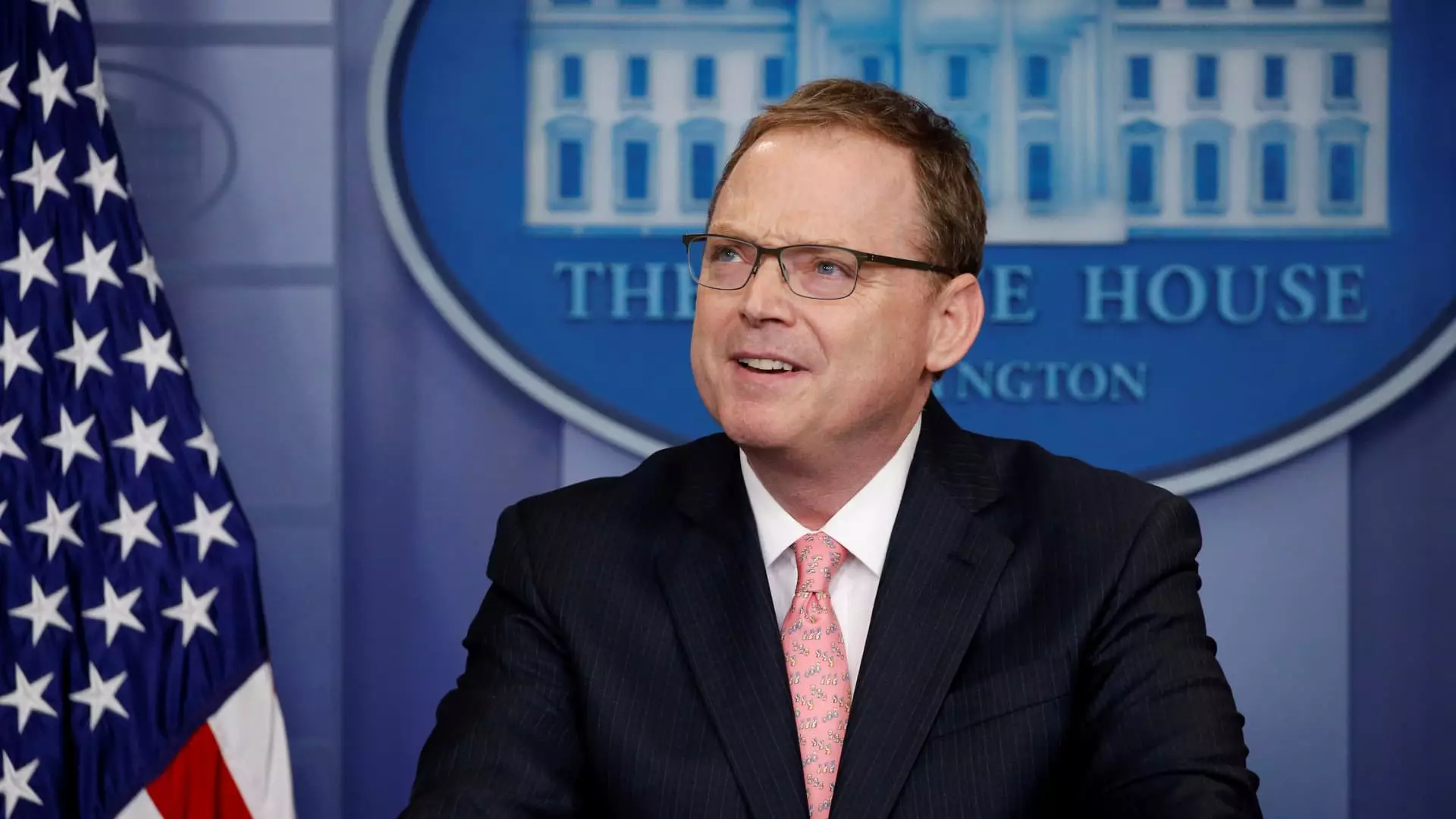As the Trump administration gears up for its next term, President-elect Donald Trump has made a significant choice by appointing Kevin Hassett to guide the National Economic Council (NEC). This pivotal role places Hassett at the forefront of the administration’s economic strategies, overseeing crucial discussions that encompass trade, taxation, and deregulation. Such a decision not only showcases Trump’s commitment to solidify his economic team but also emphasizes a continuity in the economic policies that shaped his first term. With the U.S. Trade Representative position being a notable exception, Trump is seemingly close to establishing a robust economic cabinet that aligns with his vision.
Kevin Hassett is far from being an unfamiliar face in the realm of economic policy. Having previously served as the chairman of the Council of Economic Advisers during Trump’s first term, he is well-versed in the complexities of the administration’s fiscal agenda. His advocacy for corporate tax cuts and support for protectionist tariffs illustrate his alignment with Trump’s economic philosophy. Moreover, Hassett’s background as a scholar at the American Enterprise Institute lends an intellectual foundation to his approach to economic issues. This blend of academic understanding and practical experience positions Hassett to tackle pressing challenges, such as trade negotiations and tax reform, with a seasoned perspective.
The timing of Hassett’s appointment coincides with Trump’s renewed commitment to imposing stringent tariffs. By potentially imposing an additional 10% tariff on all Chinese imports and a substantial 25% tariff on goods from Mexico and Canada, Trump aims to reshape trade dynamics drastically. These measures could signal a departure from established free trade agreements, potentially destabilizing international trade relations. Justifications for these tariffs, steeped in concerns over illegal immigration and the narcotics trade, reflect a broader nationalistic economic strategy—one that prioritizes American interests albeit at the risk of retaliatory measures from trading partners.
Despite the contentious nature of these policies, Hassett’s experience with key figures such as Jared Kushner showcases the administration’s capacity for collaborative governance. His involvement in immigration reform and sanctions policy indicates a versatile approach that integrates economic considerations with broader national interests. As Trump prepares for his inauguration on January 20, the strategic alignment within his economic team hints at a cohesive approach to tackling the intertwined challenges of trade, economy, and immigration policy.
In addition to Hassett’s appointment, Trump has signaled plans to nominate Scott Bessent, an experienced hedge fund manager, as Treasury Secretary. This choice complements the anticipated economic agenda, suggesting that the Trump administration is leaning toward market-savvy individuals who can navigate the economic waters amid potential upheavals. As the administration sets forth, the convergence of experienced leadership and assertive policy decisions paves the way for a distinct economic approach that aims to prioritize American economic sovereignty, though not without significant risks and uncertainties in the global marketplace. The coming months will prove critical as these policies unfold and their ramifications are felt domestically and abroad.

